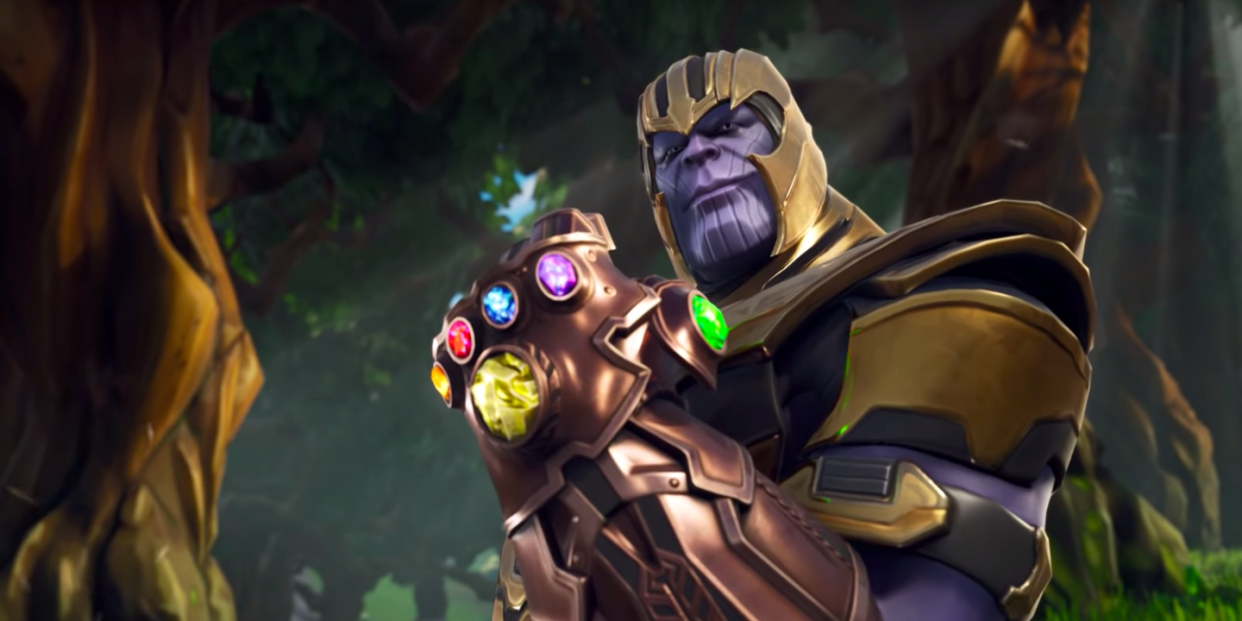The Year 'Fortnite' Changed Video Games Forever

Is single player dead? Video game critics and players have been asking this question for awhile now. Each year, the industry seems to bend further away from narrative gaming, yielding to the beck and call of massively multiplayer online titles (called MMOs) like World of Warcraft and Grand Theft Auto Online, which have become the gold-standard of the medium. Individual gamers don't just spend hours on these games, but potentially, days, weeks, or even months sucked into playtime. And developers know if they can keep you playing, they can keep making money off of you.
But this year also saw the debuts of critically acclaimed single player titles like Red Dead Redemption 2, Celeste, God of War, and Spider-Man. Red Dead Redemption 2 alone earned developer Rockstar Games more than $725 million in opening weekend sales, not only becoming the biggest opening in gaming, but, according to Rockstar, the biggest opening in the history of entertainment.
Off Red Dead's success alone, one would think that single player games–the kind of titles cherished by critics and longtime gamers–were narrowly saved in 2018. But that would be like talking about cinema this year while ignoring Marvel movies, or talking about music and ignoring Kanye West. Without argument, the most significant phenomenon of 2018 in video games was, for better or worse, Fortnite.
Epic Games’ Fortnite, a free-to-play online shooter that is centered around the simple premise of the last-man-standing “Battle Royale” mode, has cast a shadow so large it covers not only the gaming industry, but internet culture and American media as a whole. (For proof, look no further than their "Infinity Gauntlet" collaboration with Marvel.)
Even if you haven't played, you may recognize Fortnite from its popular dance moves (some of which are now the subject of intellectual property lawsuits), that Saturday Night Live sketch, or YouTube's 2018 Rewind. Perhaps you’ve heard about it on the nightly news, where more and more cases of Fortnite addiction are making headlines. Hell, even Drake got in on the action.
The game has created a thriving subculture all its own. According to Business Insider, nearly 80 million people played Fortnite in August 2018. For reference, that’s roughly 20 million more than the entire population of Great Britain. It's on track to make $2 billion this year, as Bloomberg reported back in June. This isn’t just a game. It's a total cultural shift.
Fortnite, at its roots, is not unlike other MMO games: You create a character and enter a world to do battle against other users online. What is different are the “V-Bucks," the currency used in Fortnite-also known as the ever-enticing purchasable “loot.” Using real world dollars or hours spent in playtime, a variety of outfits, items, and other bonus features can be bought. But all of the loot isn't always available; only a handful of items at a time are up for grabs on the game’s internal storefront. And so we see kids obsessing over it, returning again and again trying to grab that next upgrade so their character can floss in the trendiest new gear online.
It’s not hard to imagine how Fortnite could completely reshape the industry. In many ways, it's already begun. As Epic Games continues to dominate, we're already seeing major titles implement Fortnite’s Battle Royale mode, like Call of Duty: Black Ops 4 and Battlefield V. Games have always morphed and followed the leader to stay relevant, but as Fortnite gains steam, it seems to do so in a trajectory that is not even comparable to story-driven games like the brilliant Spider-Man from Insomniac Studios.
Games need not be single player to be good. There is ingenuity and appeal to multiplayer gaming, and Fortnite is by no means bereft of creativity or vibrancy. Some kids are using the game to compete with their friends online, enamored by the moment, and anxious to be a part of one of the biggest cultural phenomenons of all time. But are the same things that make Fortnite such a seemingly addictive experience a reason to be concerned? And how will that success continue to shape an ever-fluctuating gaming industry?
Those questions remain to be answered, but one thing is for sure-in 2018, single player may have been saved, but multiplayer titles like Fortnite widened the gap more than ever before.
('You Might Also Like',)

